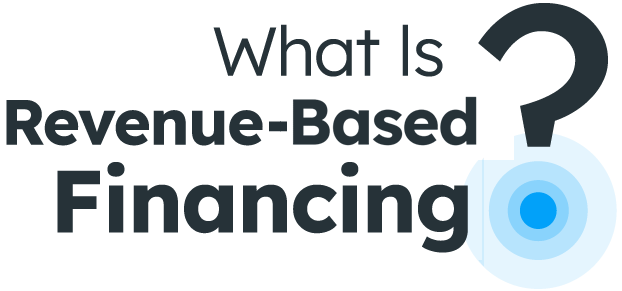Revenue-based financing (RBF), also referred to as sales-based financing, depends on businesses thriving. Unlike traditional loans where banks simply collect collateral when a customer defaults. This is one reason why RBF is gaining popularity among small businesses as an alternative financing solution. Traditional debt financing models may not be the ideal funding option for small businesses due to their stringent eligibility criteria, lengthy application and approval process, accruing interest, and rigid payment terms. Small businesses may need to consider alternative funding options, like RBF, to find the financing that best fits their needs and goals.
How RBF Differs from Traditional Bank Loans
Accessible Eligibility Criteria
Traditional loans are typically issued by banks or other financial institutions, which have strict eligibility criteria that small businesses may find difficult to meet. RBF providers are more focused on the business’s revenue and growth potential, making RBF a more accessible funding option for small businesses that may not qualify for a traditional bank loan.
Loan Size
Traditional bank loans may have a minimum financing amount that is more than what the average small business needs or can qualify for. RBF providers can often provide smaller funding amounts for businesses that demonstrate strong growth potential but may not yet have a significant revenue track record.
Flexible Terms
Traditional bank loans typically require borrowers to make fixed monthly payments – regardless of the performance of their business. RBF providers, on the other hand, receive a percentage of the business’s future revenues until the total amount agreed-upon upfront is paid in full. This means that the amount that the customer must pay can fluctuate along with the natural fluctuations of a small business’s revenue.
Quick Process
Applying for a traditional bank loan can be a time-consuming process that involves extensive documentation and verification procedures. The approval process can be lengthy as well, taking several weeks or even months. This delay can be a significant hindrance for small businesses that require funding quickly to manage an unexpected expense or to seize an opportunity.
No Interest or Collateral
Traditional bank loans typically charge an interest rate on the outstanding balance of the loan and require collateral to secure the loan. So, the longer the customer has a balance, the more they end up paying. Because RBF providers charge a fixed amount for their funding and usually do not require collateral, customers don’t pay more than the original agreed-upon amount and do not risk asset seizure or foreclosure.
Comparing Funding Options
This chart provides a high-level comparison between RBF and other types of financing. The specifics of each financing option may vary depending on the provider and their agreement.
| Funding Option | Revenue-Based Financing (RBF) | Traditional Bank Loans | Venture Capital (VC) |
|---|---|---|---|
| Funding Source | Alternative provider | Large, national bank or credit union | VC firm or angel investor |
| Cost | Fixed amount based on risk profile | Variable interest rate based on risk profile | Equity in company in perpetuity |
| Average Funding Amount | $30K (1) | $600K (2) | $50M+ (3) |
| Payment Terms | % of revenue until a fixed amount is reached, with no interest | Fixed principal and interest payments over a set period of time, usually with interest | Ownership stake, with exit through IPO or acquisition |
| Risk | Shared risk between provider and borrower | Borrower assumes all risk, including personal guarantee and/or collateral | Valuation risk and ownership control, shared between VC firm and borrower |
| Speed | Within days | 1 - 3 Months | 2 - 6 Months |
| Purpose | Flexible use of funds for any business purpose | Specific purposes, such as equipment or real estate | Growth and expansion |
Legislation and Regulation
Because RBF is a purchase and sale transaction, providers are not subject to the same laws and regulations as a traditional financial institution, like a bank. They are subject to certain laws and regulations, including state disclosure and registration laws. Which is why it’s important to work with a reputable and reliable provider that has a long track record of good customer service.
Who It’s For
RBF is best suited for small businesses looking for fast, flexible financing options without giving up equity or collateral. Learn about the types of businesses that typically choose this kind of financing.
Learn More